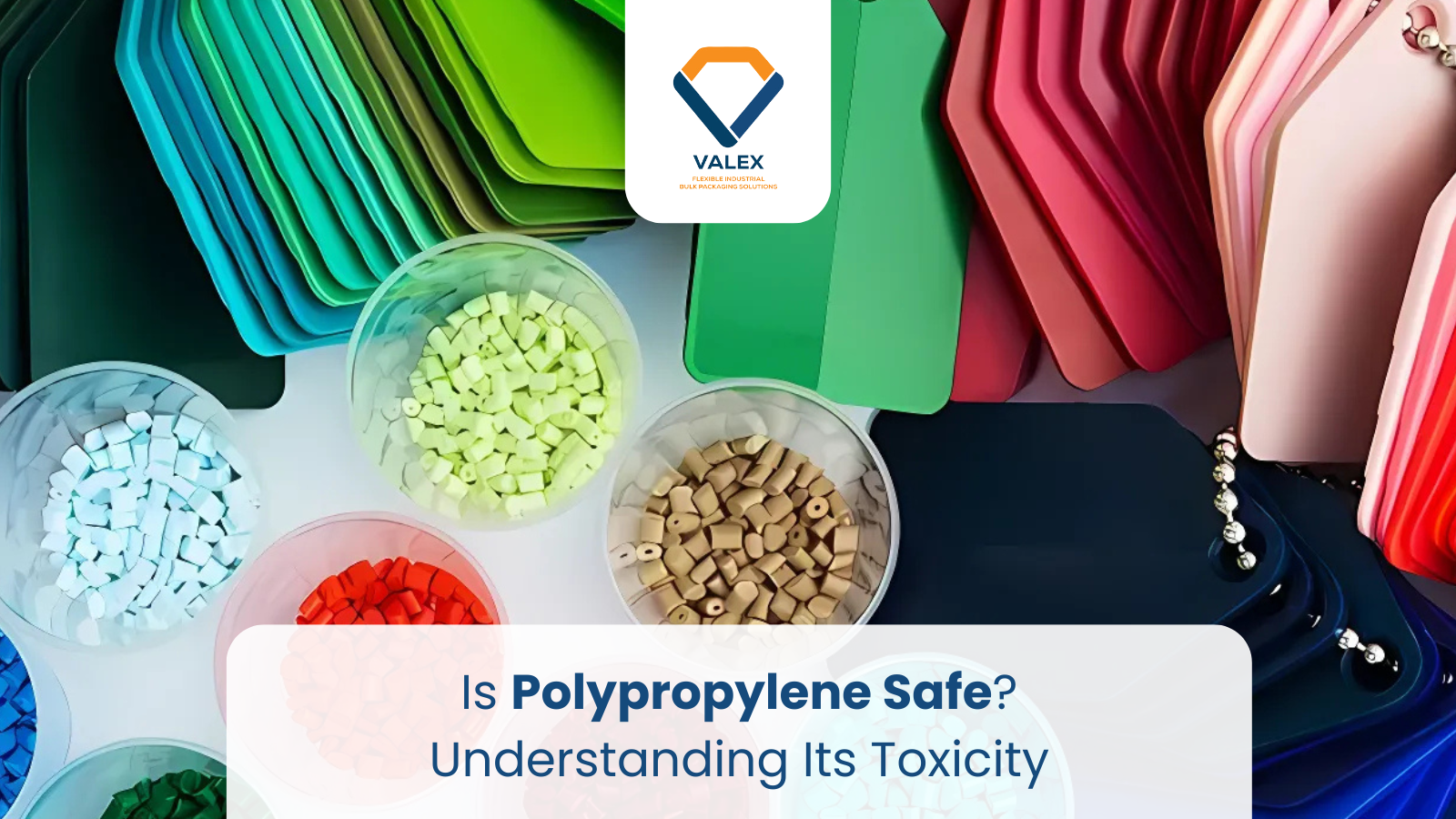Polypropylene is one of the world's most common plastics. It shows up in everything like FIBC bags, storage containers, reusable shopping bags, medical equipment, and even children's toys. Its popularity comes from its durability, heat resistance, and lightweight feel. Still, many people wonder, is polypropylene safe for everyday use? Here we'll take a look at the science behind polypropylene's safety, examine any concerns about its toxicity, and help you understand when and how to use items made from this versatile material.
Polypropylene (PP) is a thermoplastic polymer made by linking propylene monomers in long chains. Because it softens when heated and hardens when cooled, manufacturers can mold it into a huge variety of shapes: bottle caps, kitchenware, automotive parts, and non-woven fabrics for masks or disposable gowns. Its ability to withstand repeated heating cycles makes it a go to choice for products that come into contact with hot foods or liquids.
Is Polypropylene Toxic to Humans?

Decades of research show that polypropylene plastic does not leach harmful chemicals under normal conditions. Unlike some other plastics, PP does not contain phthalates or BPA, meaning it is generally considered BPA free and free of known endocrine disruptors.
Chemical Stability and Heat Resistance
Because of its high melting point (around 160°C), polypropylene stays stable during dishwasher cycles and in microwave use provided it's labeled microwave safe. This stability prevents the breakdown of the polymer structure and keeps additives from migrating into food or beverages.
Food and Medical Applications
Regulatory bodies including the U.S. Food and Drug Administration (FDA) and the European Food Safety Authority (EFSA) have approved polypropylene for food contact and medical use. It's widely used in baby bottles, food containers, and syringes because it can be sterilized, resists chemicals, and does not absorb moisture.
Additives and Colorants
While pure PP is inert, some colored or modified polypropylene products may include additives for UV resistance, flexibility, or color. Most of these additives are similarly approved for safety, but it's wise to buy from reputable brands and look for products marked food-safe or medical grade.
Microplastics and Wear
Over time, polypropylene items, especially fabric blends, can shed tiny fibers or particles. Although these microplastics raise environmental and health questions, there is currently no evidence that normal household use of PP bags or containers poses a risk to human health.
Choosing Quality Products
Care and Maintenance
Although not directly related to toxicity, it's worth mentioning that polypropylene recyclers accept PP under code 5. Proper recycling helps reduce environmental impact and keeps PP out of landfills. Buying products made with recycled PP also supports a circular economy.
Based on extensive testing and regulatory approval, polypropylene is safe for food contact and everyday use. It does not release BPA or other known toxins and holds up well under heat and chemical exposure. By choosing quality, certified products and following care guidelines, you can confidently use polypropylene items without worrying about toxicity.
Ready to ensure safety and compliance with best polypropylene FIBC bags?
Partner with Valex Ventures, the best FIBC bag manufacturer, for durable, food-grade bulk containers you can trust. Contact us today to get a custom quote and protect your products with confidence.
Is polypropylene fabric toxic?
No. Non-woven and woven PP fabrics are considered chemically inert and safe for skin contact.
Is polypropylene BPA free?
No. Polypropylene is naturally BPA-free and does not require BPA in its production.
Can polypropylene release harmful chemicals when heated?
When used according to microwave-safe or dishwasher-safe labels, PP remains stable and does not leach toxic substances.
Are polypropylene toys harmful for children?
No. Polypropylene toys approved for children meet strict safety standards and do not contain toxic additives.